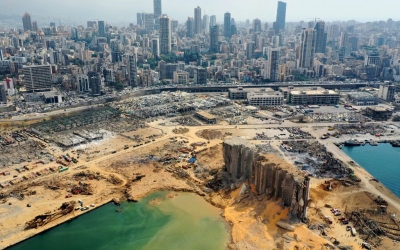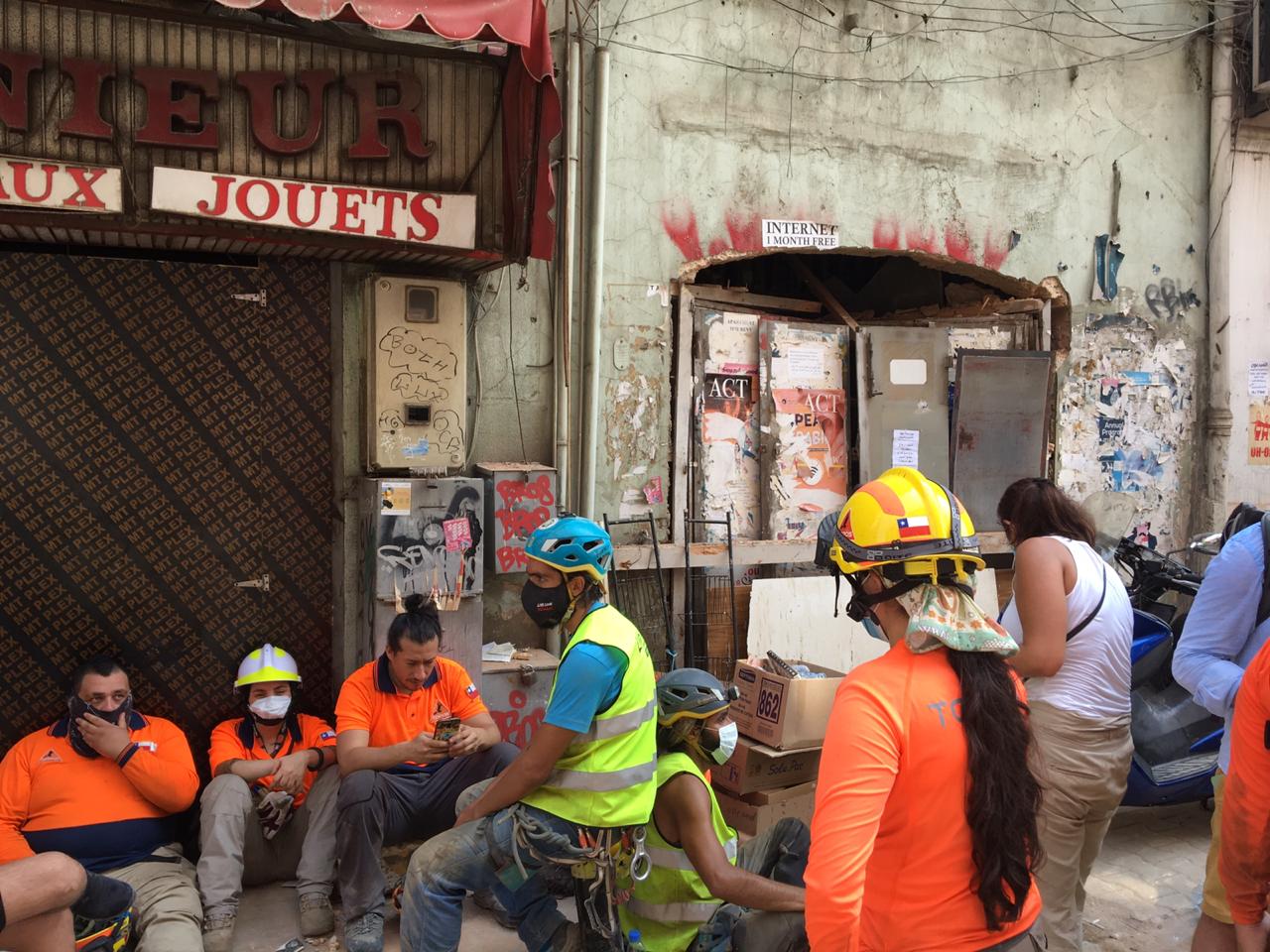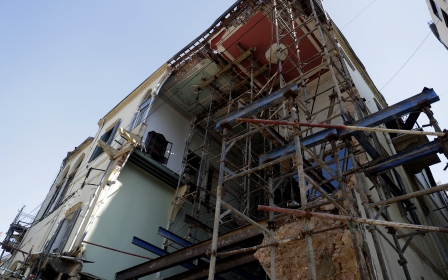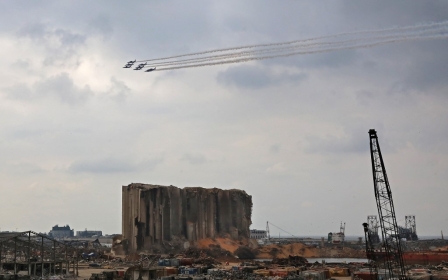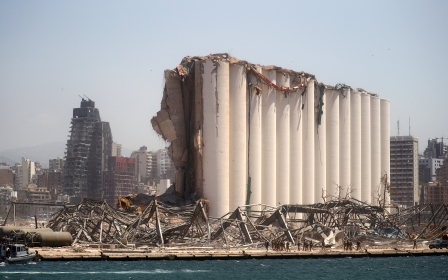Beirut explosion: Hopes fade in search for suspected survivor
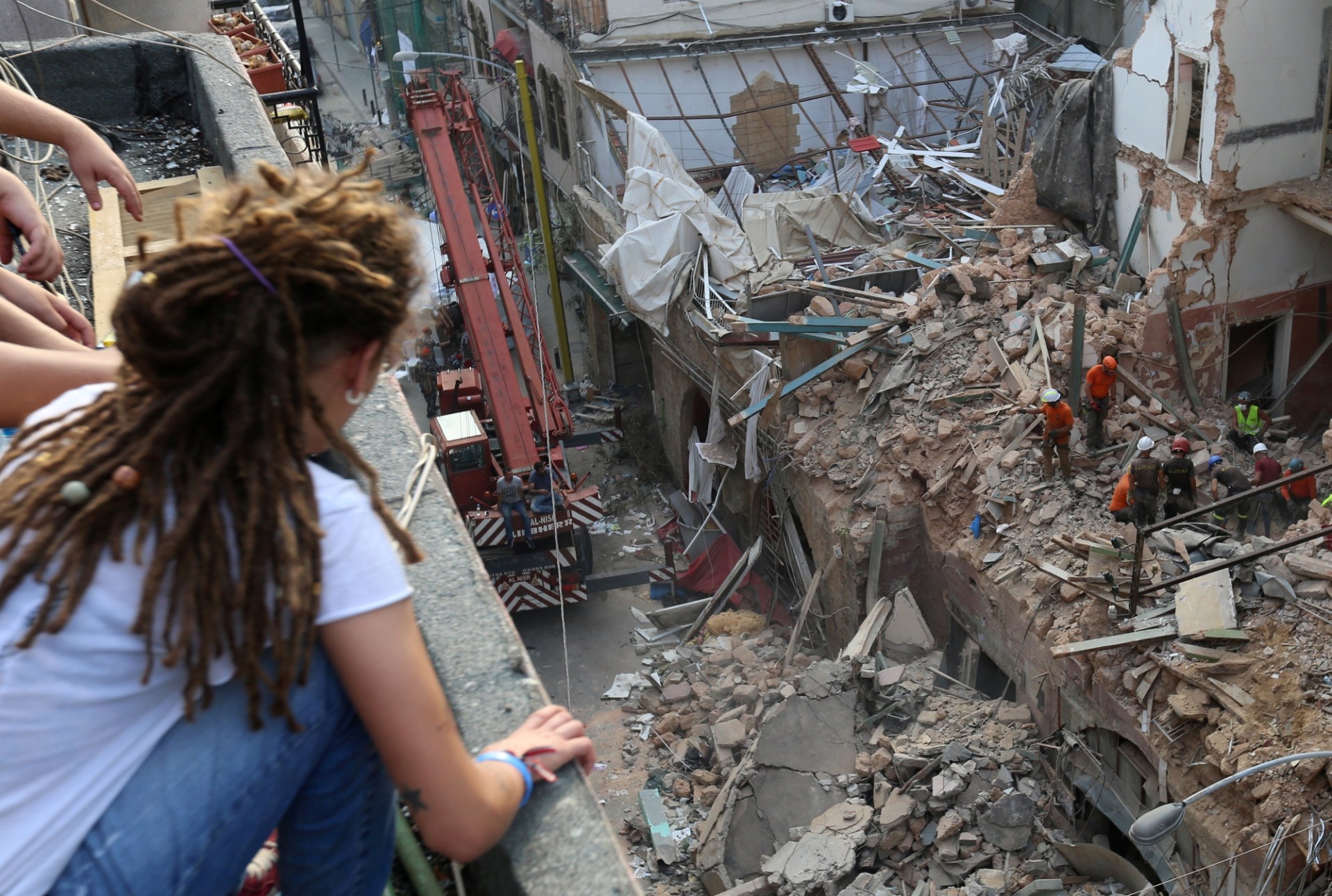
Hopes in Beirut on Saturday evening were fading of finding a suspected survivor of the huge 4 August blast that devastated large parts of the city.
Suspicions that someone might be alive beneath the rubble of a collapsed building on Gemmayzeh's Gouraud Street had arisen on Thursday, when a dog belonging to a team of Chilean rescue volunteers sounded the alarm.
Subsequent tests concluded that a faint heartbeat, possibly belonging to a small person or child, could be detected in the rubble, which had been ignored by authorities for 29 days.
On Thursday night the Lebanese army attempted to pause the operation, citing concerns about the security of a wall, saying a crane was needed and couldn't be sourced until 8am.
Outraged onlookers demanded work continue, however, with one, Melissa Fathalla, obtaining the necessary crane to keep the search going overnight.
The heartbeat remained detectable on Friday morning, though was noticeably fainter, rescue workers said, underlining the importance of every minute of the search.
Fathalla, who has been hailed a hero, told Middle East Eye too much fuss was being made of her involvement in obtaining the crane.
She and friends who are involved with local relief initiatives called an acquaintance specialising in cranes, who quickly brought one over.
"I lost my mind when I heard [the army wanted to pause the search]. It's insane. It's that one last drop of hope. How can it end with this?" she said.
"But I'm optimistic because the rescue workers ended up staying all night. We want to see the actual effort."
Anger against authorities
The Chilean volunteers and Lebanese civil defence team are still picking their way through the ruins, which lie a few hundred metres from the blast site in Beirut's port.
Residents of the area had complained of a bad smell coming from the rubble. However, Lebanese authorities had not begun clearing the ruins or searching for missing people.
Six people are still recorded missing after the 4 August blast, which killed nearly 200 and wounded thousands more, leaving large areas of Beirut reduced to rubble.
On Saturday, the civil defence agency's operations director, George Abou Moussa, said: "Search operations have been going on since the day before yesterday but the chances are very low. So far, we have found nothing."
But civil defence officer Qassem Khater said his team was determined not to give up. "We are not leaving the site until we've finished going through the rubble, even if a new building collapse threatens," he said.
Chilean specialist Walter Munoz on Saturday morning had put the chances of finding a survivor at "two percent".
'If I were president, I would have resigned after this explosion. What a cruel way to die. It's like drowning and no one is there to save you'
- Leila Najm, local resident
Leila Najm, an elderly woman watching from nearby, said she didn't expect the person buried beneath the rubble to survive, but added: "I believe in God. I believe in miracles.
"But if we're struggling from the heat up here, what must it be like for them trapped in the rubble?" she asked.
The explosion, caused by 2,700 tonnes of highly explosive ammonium nitrate being mysteriously ignited, has been seen as emblematic of the Lebanese authorities' negligence and corruption.
The chemical compound was held unsafely in Beirut's port, close to residential and commercial areas, for seven years as officials squabbled over what to do with the material, which had been confiscated from a ship in 2013.
Lebanon's government has stepped down in the wake of the blast, with a replacement in the process of being formed.
Though President Michel Aoun was aware of the ammonium nitrate's presence, he has refused to resign.
"This shows how this entire system is negligent. Gebran Bassil is sitting in his mansion, and only gets up when someone insults his mother," Najm said, in reference to Aoun's son-in-law and head of the major Free Patriotic Movement party.
"If I were president, I would have resigned after this explosion. What a cruel way to die. It's like drowning and no one is there to save you."
Middle East Eye delivers independent and unrivalled coverage and analysis of the Middle East, North Africa and beyond. To learn more about republishing this content and the associated fees, please fill out this form. More about MEE can be found here.


